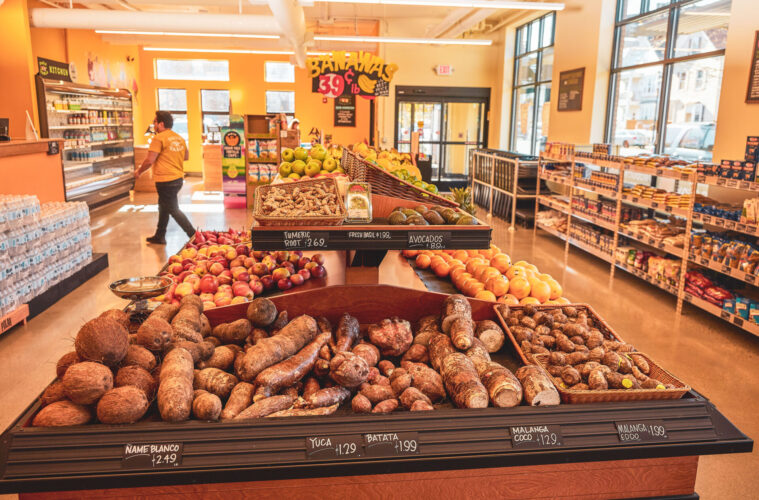Daily Table, Salem’s newest grocery store, is a modest, brightly colored shop just outside the bustling, tourist-filled downtown. The shelves and cases are stocked with all the basics—piles of vibrant fruits and vegetables, packages of lean meat, stacks of pasta and baking supplies—as well as prepared meals and soups cooked up specially for the store. A closer look, however, suggests that there’s something a little different about this shop, which opened in early September.
There are no cookies or candy or fruit juice available. None of the prices are high, and some, in fact, are surprisingly low: $1.99 for a chicken dinner complete with brown rice and vegetables, $5.99 per pound for swordfish fresh from the docks. It’s all part of the strategy behind Daily Table, a nonprofit organization with the goal of tackling food insecurity in the neighborhoods that need help the most. “Our mission is to democratize access to the good food that should be a right for all of us,” says Doug Rauch, founder of Daily Table and former president of Trader Joe’s.
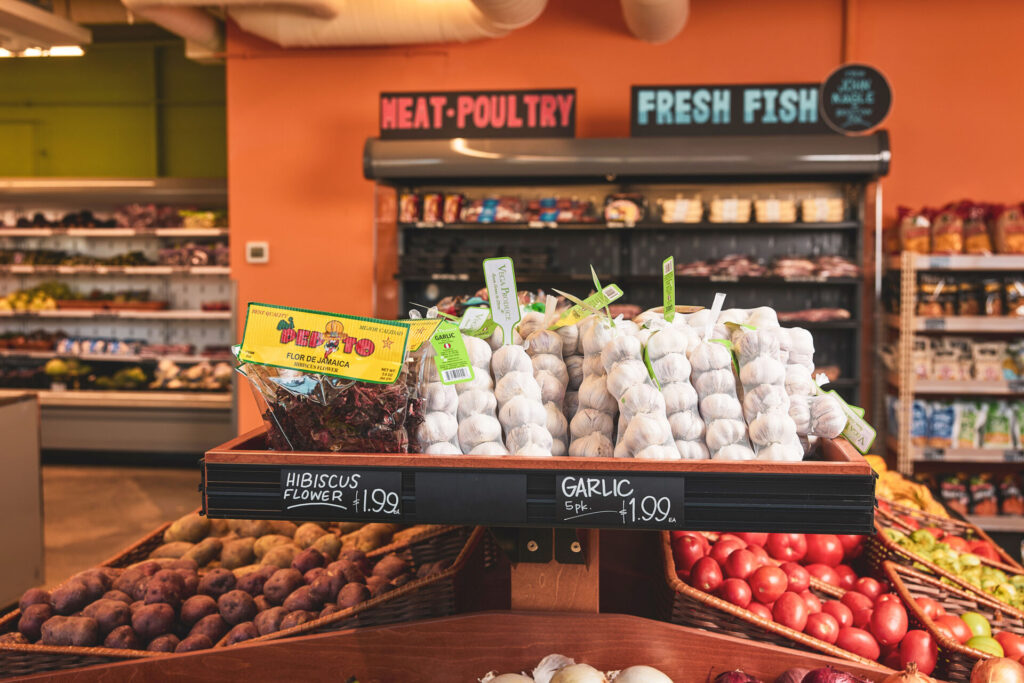
The idea first came to Rauch in 2010. He had retired from Trader Joe’s after 31 years—13 as president—and had taken a fellowship with the Advanced Leadership Initiative at Harvard University, a program that helps experienced executives refocus their energies and skills on solving social problems. Driving into Cambridge one day, Rauch saw a billboard declaring that one in six Americans deals with hunger. He was blown away by the number. “I thought, that’s like 50 million Americans. Can that be right?” he recalls. “I know we’ve got the food, so something’s wrong here.”
He focused the remainder of his fellowship, and the years that have followed, on designing ways to address this monumental need. What he came up with is Daily Table, a nonprofit grocery store that sells nutritious foods at very affordable prices in neighborhoods that have limited access to healthy options.
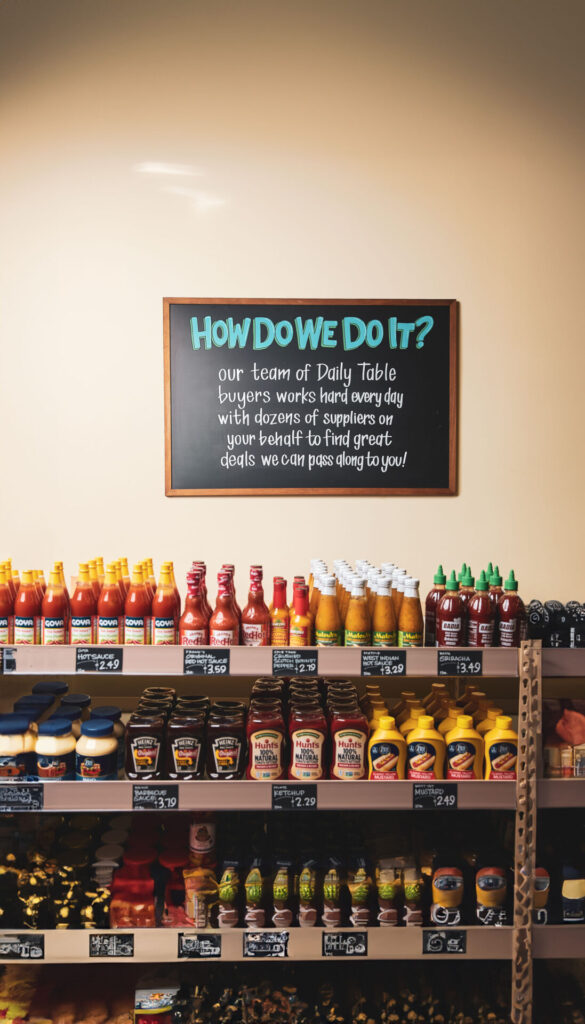
The first Daily Table store opened in Dorchester in 2015, followed by locations in Mattapan, Roxbury, Cambridge’s Central Square, and now Salem. The organization works with suppliers to negotiate discounts to keep prices low. For example, Little Leaf, a hydroponic lettuce grower based in central Massachusetts, has agreed to a price that allows the stores to sell four-ounce boxes of greens for just $1.99, a little more than half the price at major chain supermarkets.
And to maximize the benefit for shoppers using SNAP (formerly known as food stamps), the store participates in the Double Up Food Bucks program, which matches benefits used to buy fresh produce. To make sure the stores deliver nutrition to customers, Daily Table worked with experts from the Harvard School of Public Health and area hospitals to create dietary guidelines for sugar, sodium, and other major nutrients to be followed in choosing products. “We want to make sure what we’re putting out there isn’t causing hypertension or diabetes or other problems,” Rauch says.
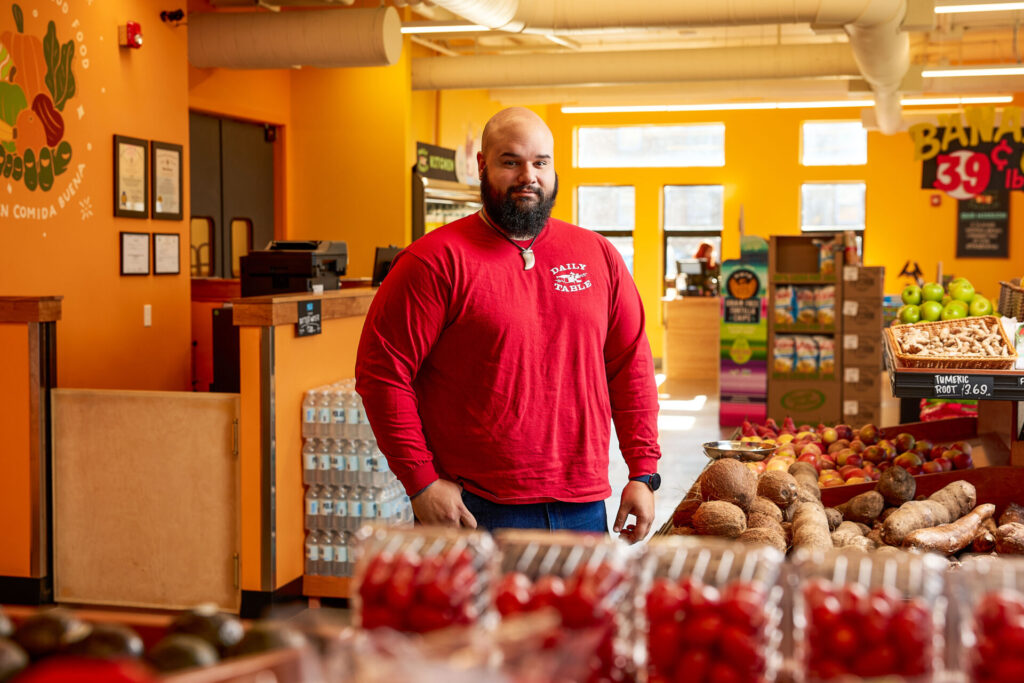
Salem landed on Rauch’s radar shortly after the first store opened. Kim Driscoll—then mayor of Salem, now lieutenant governor—got hold of Rauch’s cell phone number and called him unexpectedly to ask that Daily Table open a store in Salem.
The Point, the neighborhood in which the store is located, has a median household income of less than $48,000, well below the state median of $89,000. Rauch told her the model was still new and he needed some time to work out the kinks before thinking about expansion. Two years later, Driscoll called again. “She was persistent,” Rauch says. “And she’s very persuasive.”
Daily Table operates stores instead of a more traditional food pantry model for several reasons. Financially, the model means roughly two-thirds of the organization’s operating costs are covered by its revenue, which amplifies the impact of the money it receives in donations, Rauch says. Furthermore, the powerful societal stigma against accepting handouts often prevents people in need from taking advantage of free resources, Rauch’s research found.
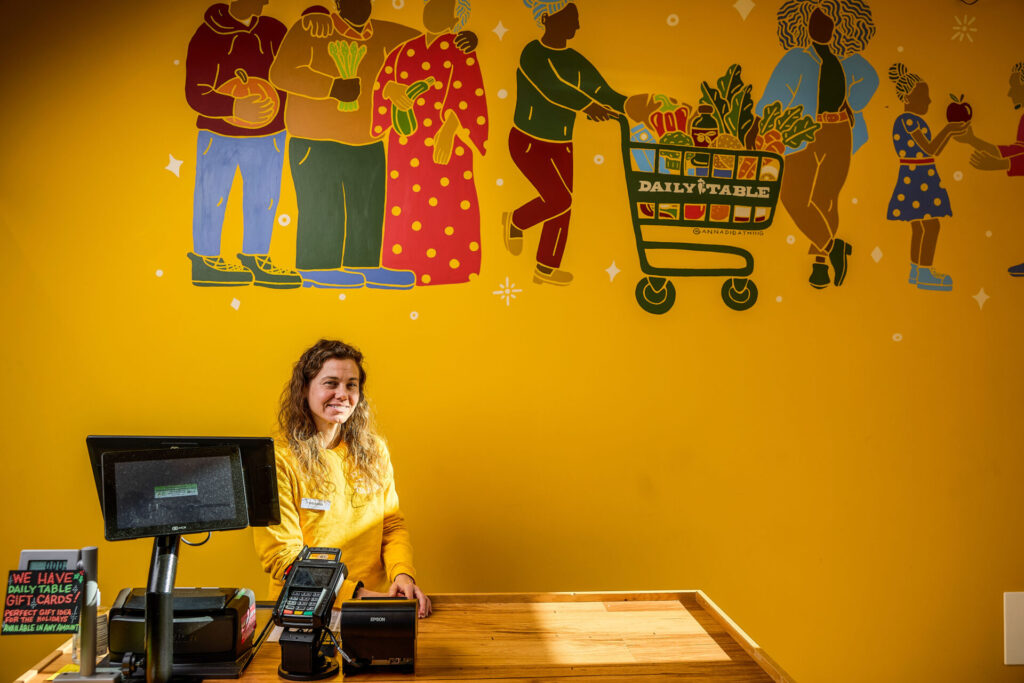
Shopping and paying for groceries can give people in need a valuable sense of agency and dignity, he says. “The vast majority of our customers don’t even know we’re a nonprofit—and why should they?” Rauch says.
Running stores also allows Daily Table to create local jobs: Most of the employees at the Salem store live within a four-block radius of work, and all are paid more than minimum wage. There is also room for advancement in the organization, Rauch notes. Managers’ pay is competitive with other grocery chains, and the jobs come with an extra dose of pride, says Salem store manager Francisco Rodriguez-Roig. “It feels like being part of something big,” he says. “It’s not just a big company trying to make a profit.”

